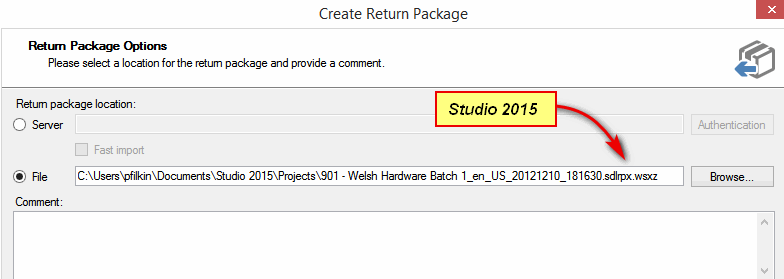Hi,
I'm experiencing some troubles, as apparently Studio 2017 creates return packages with the following format: .sdlrpx.wsxz
Studio 2015 only creates return packages in .sdlrpx, which is the format the client wants.
Are there any solutions to make sure to have return packages with Studio 2017 in .sdlrpx?
Thanks for your inputs!

 Translate
Translate

